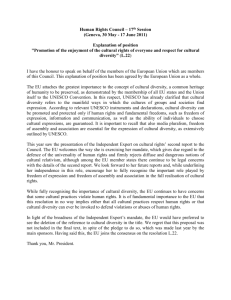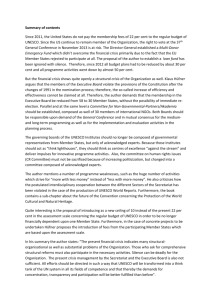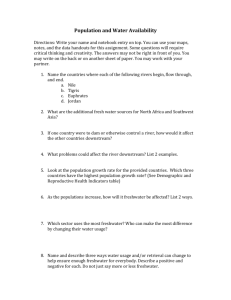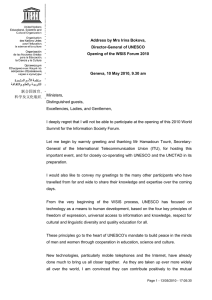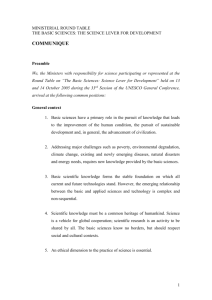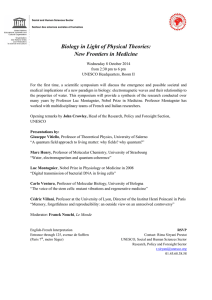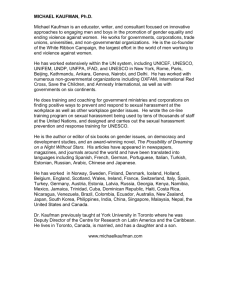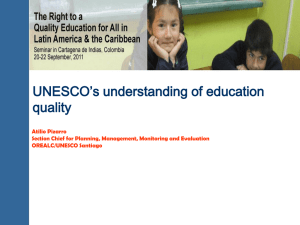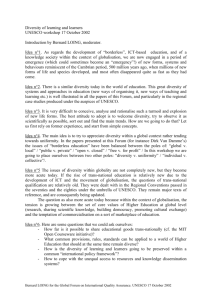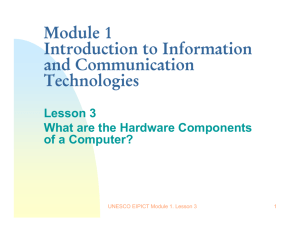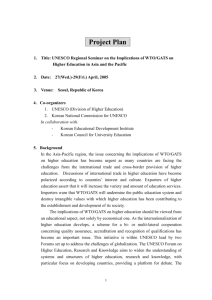Michael Barry, UNESCO speechwriter
advertisement
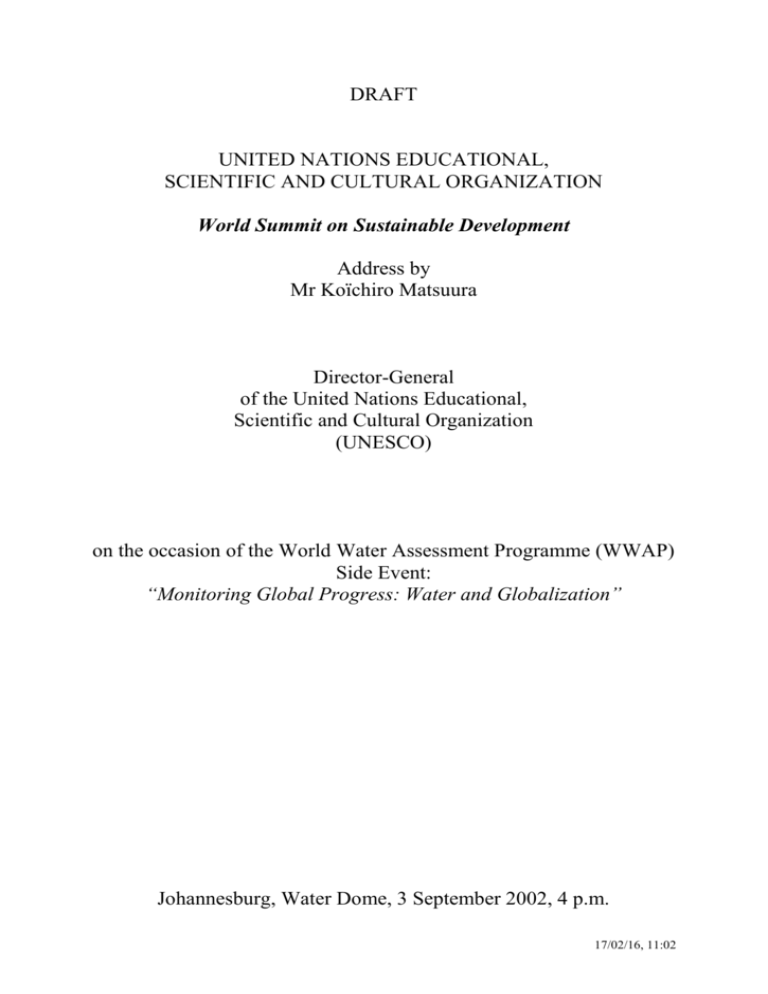
DRAFT UNITED NATIONS EDUCATIONAL, SCIENTIFIC AND CULTURAL ORGANIZATION World Summit on Sustainable Development Address by Mr Koïchiro Matsuura Director-General of the United Nations Educational, Scientific and Cultural Organization (UNESCO) on the occasion of the World Water Assessment Programme (WWAP) Side Event: “Monitoring Global Progress: Water and Globalization” Johannesburg, Water Dome, 3 September 2002, 4 p.m. 17/02/16, 11:02 1 Your Excellencies, Ladies and Gentlemen, Let me begin by greeting all the participants at this important Side Event on ‘Monitoring Global Progress: Water and Globalization’, hosted by the World Water Assessment Programme. I regret not having been with you earlier but, as you know, there are many events of great importance that require my attention during this World Summit. Water is now recognized as being the basis for sustainable development. Competition between uses and users of water is growing. This makes more urgent than ever before the need to act in unison so that water resources can be managed as wisely as possible. The United Nations system has responded to this need for integrated management by creating the World Water Assessment Programme. The Programme is a most important initiative bringing together all the agencies of the UN system having an interest in freshwater issues. UNESCO is very proud to host the Secretariat for the Programme, thereby facilitating the process of integrating the efforts of all the agencies involved. Issues of poverty, education, and peace find expression throughout UNESCO’s programmes and mandate. Freshwater concerns are at the interface where health security, food security and environmental sustainability meet. Indeed, it is entirely appropriate at 2 this World Summit meeting that water is at the centre of the global debate: water for sanitation, for energy, for health, for agriculture and for bio-diversity. Thus, UNESCO recognizes that freshwater is a global issue requiring immediate action. That is why the 31st session of the UNESCO’s General Conference selected “Water Resources and Supporting Ecosystems” as the principal priority of the Natural Sciences Sector for the current biennium (2002-2003) and beyond. I am particularly pleased that the World Water Assessment Programme not only brings together the members of the UN family in common effort, but that so many countries are also showing keen interest in and support of the Programme. I am delighted that so many ministers are able to be with us today to celebrate progress being made. It will be particularly important in the years ahead that the Programme provides support to many nations in need, especially to help build their capacities to make water resource assessments within their countries and to take the actions needed to alleviate poverty and enhance social and economic development. Many of the countries represented here today have contributed case studies, data or lessons learned for inclusion in the first edition of the World Water Development Report that will be launched during the Third World Water Forum at Kyoto in March 2003 as a major contribution to the Programme. 3 At the start of this session, Mr Desai announced that 2003 has been designated the UN Year of Freshwater, led by UNESCO and UN DESA. I should like to emphasize that UNESCO considers this special designation for 2003 as vitally important. It will help to remind the world community of how critically important are our water resources. I would like to sincerely thank Tajikistan, in the person of His Excellency Mr. Kozidavlat Kiomdodov, the Deputy Prime Minister, for proposing that 2003 be declared the Year of Freshwater. The launching of the World Water Development Report at Kyoto will be a major contribution to the celebration of the Year. It is particularly pleasing to me that the next World Water Forum will be held in Japan. The Report will be launched on 22 nd March, the UN Day of Freshwater, and the day on which the Ministerial Conference will begin in Kyoto. Ladies and Gentlemen, In closing, let me once again offer my thanks to the governments supporting the World Water Assessment Programme. For our part, please be assured that UNESCO is fully committed to ensuring the future of the Programme and its success. Thank you.
